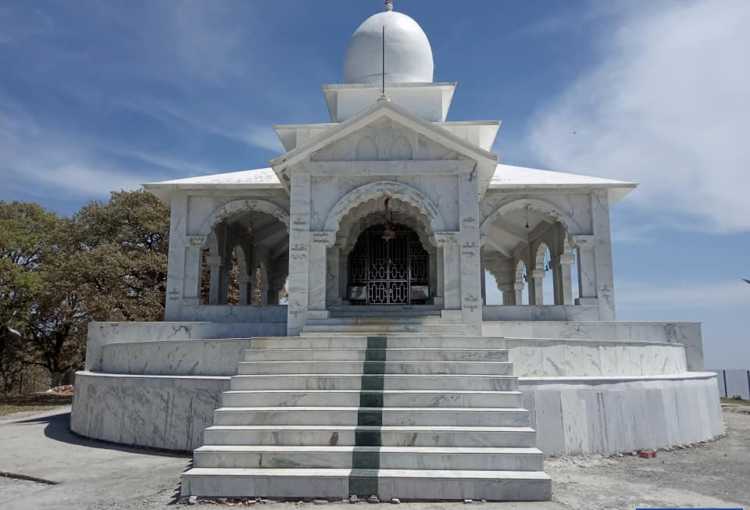Stamp: Bhringareshwor Mahadev, Lalitpur (Nepal 2016)
Bhringareshwor Mahadev, Lalitpur (Nepal 2016)
01 January (Nepal ) within release Sights goes into circulation Stamp Bhringareshwor Mahadev, Lalitpur face value 2 Nepalese rupee
| Stamp Bhringareshwor Mahadev, Lalitpur in catalogues | |
|---|---|
| Michel: | Mi: NP 1232 |
| Stamp Number: | Sn: NP 1029 |
Stamp is horizontal format.
Stamp Bhringareshwor Mahadev, Lalitpur it reflects the thematic directions:
Architecture (Latin architectura, from the Greek ἀρχιτέκτων arkhitekton "architect", from ἀρχι- "chief" and τέκτων "builder") is both the process and the product of planning, designing, and constructing buildings and other physical structures. Architectural works, in the material form of buildings, are often perceived as cultural symbols and as works of art. Historical civilizations are often identified with their surviving architectural achievements.
Religion is any cultural system of designated behaviors and practices, world views, texts, sanctified places, ethics, or organizations, that relate humanity to the supernatural or transcendental. Religions relate humanity to what anthropologist Clifford Geertz has referred to as a cosmic "order of existence". Different religions may or may not contain various elements ranging from the "divine", "sacred things", "faith", a "supernatural being or supernatural beings" or "some sort of ultimacy and transcendence that will provide norms and power for the rest of life". Religious practices may include rituals, sermons, commemoration or veneration (of deities), sacrifices, festivals, feasts, trances, initiations, funerary services, matrimonial services, meditation, prayer, music, art, dance, public service, or other aspects of human culture. Religions have sacred histories and narratives, which may be preserved in sacred scriptures, and symbols and holy places, that aim mostly to give a meaning to life. Religions may contain symbolic stories, which are sometimes said by followers to be true, that have the side purpose of explaining the origin of life, the Universe and other things. Traditionally, faith, in addition to reason, has been considered a source of religious beliefs. There are an estimated 10,000 distinct religions worldwide. About 84% of the world's population is affiliated with one of the five largest religions, namely Christianity, Islam, Hinduism, Buddhism or forms of folk religion.
A temple (from the Latin word templum) is a building reserved for religious or spiritual rituals and activities such as prayer and sacrifice. It is typically used for such buildings belonging to all faiths where a more specific term such as church, mosque or synagogue is not generally used in English. These include Hinduism, Buddhism, and Jainism among religions with many modern followers, as well as other ancient religions such as Ancient Egyptian religion.
Tourism is travel for pleasure or business; also the theory and practice of touring, the business of attracting, accommodating, and entertaining tourists, and the business of operating tours. Tourism may be international, or within the traveller's country. The World Tourism Organization defines tourism more generally, in terms which go "beyond the common perception of tourism as being limited to holiday activity only", as people "traveling to and staying in places outside their usual environment for not more than one consecutive year for leisure, business and other purposes". Tourism can be domestic or international, and international tourism has both incoming and outgoing implications on a country's balance of payments. Today, tourism is a major source of income for many countries, and affects the economy of both the source and host countries, in some cases being of vital importance.




